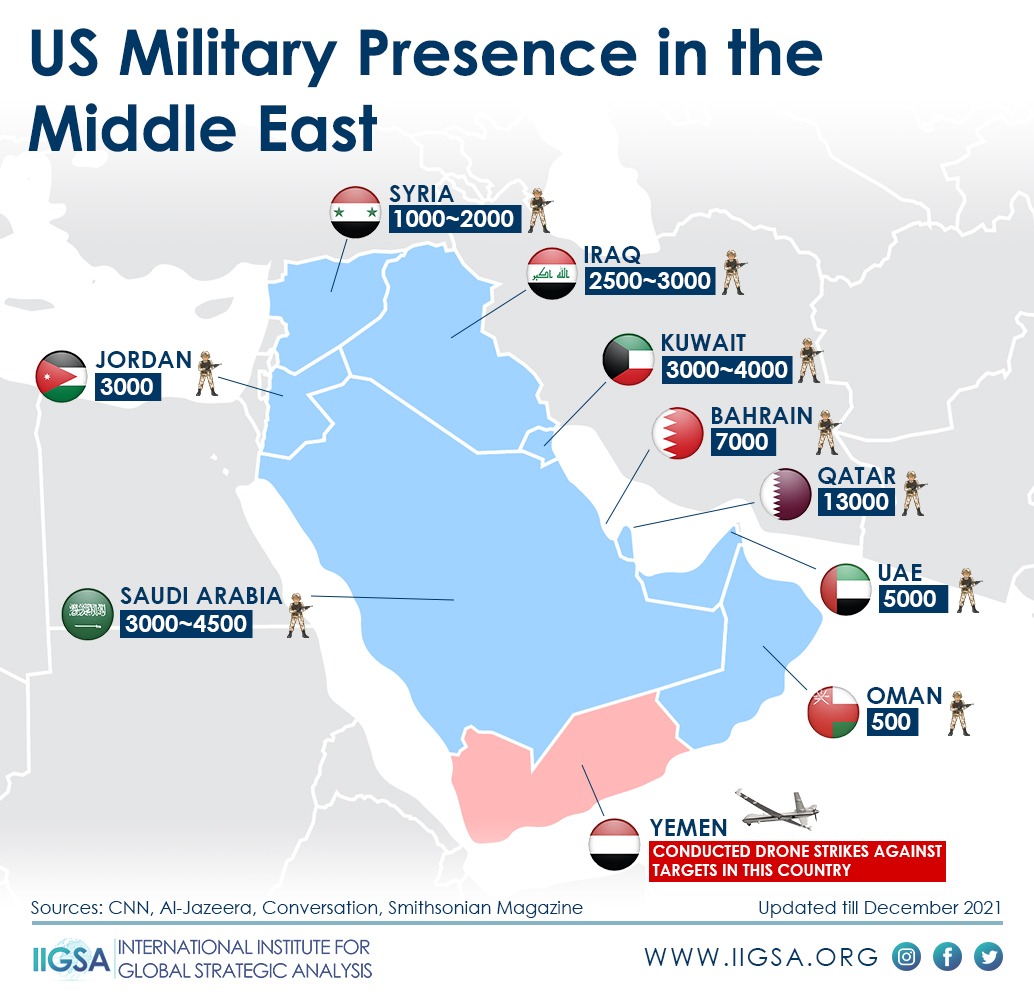Israel and the End of Western Civilization
Israel is of great strategic importance to the US and the West. A threat to Israel is an existential threat to America.

There is understandable hatred on both sides of the fight between Israel and Palestine.
The history of animosity goes back to the division of the Ottoman Empire after it was defeated by Britain and France during World War 1, with historical reference points going back even further.
In 1914 at the start of the Great War, the Ottoman Empire - aka the Turkish Empire - controlled a significant portion of the Middle East. During the war the Ottomans joined the "Central Powers" - Germany and Austria-Hungary - to fight against Britain and France.

During the war, British diplomats including T.E. Laurence (aka "Laurence of Arabia") colluded with Arabs living in the Middle East to help topple the Ottomans. Arabs sought self rule with a goal to create a single unified and independent Arab state stretching from Aleppo, Syria, to Aden, Yemen. Britain promised to recognize an Arab state in exchange for assistance fighting the Ottomans. The Arabs agreed and The Arab Revolt against the Ottomans started in 1916, helping turn the tide of the war.
Britain, however, covertly broke its promise with the Arabs and through secret dealings with France crafted the Sykes-Picot Agreement which divided the Ottoman Empire into British, French and internationally-controlled territories. The agreement allocated to the UK control of what is today southern Israel and Palestine, Jordan and southern Iraq, and an additional small area that included the ports of Haifa and Acre to allow access to the Mediterranean.
Eventually the Sykes-Picot Agreement was leaked. The Arabs were betrayed. Beyond the betrayal, the artificial divisions created by the Sykes-Picot line cut across sectarian boundaries with little consideration for natural or historical divisions.

Britain and France at the time were imperial powers seeking control of the Middle East because it provided jump points to access colonies and resources. Britain in particular needed control of the Suez Canal so it could quickly reach India - the crown jewel of the British Empire. Moreover, Britain sought control of Iraq for its oil bounty.
The Jewish Promise
While Britain was making side-deals with France, it was also lobbying to convince America to enter the war and beleaguered Russia to remain in it. Some believed that Jews living in the US and Russia had the political power to sway decisions, so Britain directed its manipulation accordingly.
Britain viewed the Jewish diaspora as a unified entity, despite being scattered around the world. To encourage Jews living in America, Russia and elsewhere to support the war effort, Britain leveraged the Jewish desire for a national state and a return to the "promised land".
In 1917 Britain made the Balfour Declaration: the creation of a Jewish state within Palestine. Of course, this required the defeat of the Ottoman Empire first, so the Declaration was a subtle call to arms.
Sykes had a hand in promoting the Balfour Declaration - something that later haunted him. At the time of this declaration, the vast majority of Palestine's population was Arab, stoking tensions between Arabs and Jews. Moreover, promise of a Jewish state directly contradicted the nationalist commitments Britain made to Arabs in return for their fight against the Ottomans. Again, Arabs were betrayed.
The Balfour Declaration was later formalized by the British Mandate of rule over Palestine and finally the 1948 UN Declaration of the Establishment of the State of Israel, which partitioned Palestine into Jewish and Arab lands.
Today
British double-dealing and imperialist ambitions of the early 20th century created the conflict we see today.
To be fair, both the Jews and Arabs were led astray by diplomats like Mark Sykes who were overconfident in their ability to shape the world.
Arabs were led to believe they could form an Arab state after WWI, and instead had their hopes dashed.
The Jews were made a promise that was flawed from the start.
Of course, the Jews wanted to return to the promised land. They have a long history in the region. But it was unreasonable to expect handing over a significant portion of Muslim-majority Palestine wouldn't create conflict. Britain had to have known this, yet their wartime priorities, hubris and imperialistic ambitions took priority.
From Britain's perspective, these shenanigans might have been the only reason it didn't lose the war and retained any form of post-war power. Sykes, Laurence and other British leadership at the time would probably argue they had no better choices. Empires gonna empire.
However, it's not without later regret that these decisions were made. Sykes' biographer, Shane Leslie, wrote in 1923 after Sykes' death in 1919:
From being the evangelist of Zionism during the war he had returned to Paris with feelings shocked by the intense bitterness which had been provoked in the Holy Land. Matters had reached a stage beyond his conception of what Zionism would be. His last journey to Palestine had raised many doubts, which were not set at rest by a visit to Rome. To Cardinal Gasquet he admitted the change of his views on Zionism, and that he was determined to qualify, guide and, if possible, save the dangerous situation which was rapidly arising. If death had not been upon him it would not have been too late.
As the 20th century proceeded, imperial influence receded and power vacuums and conflict grew throughout the Middle East. The October 7th attack on Israel has its roots in the dealings made over a century ago. So does Israel's response.
Who's right? I honestly don't think anyone is 'right'. The entire post-WWI scenario was executed poorly and for the wrong reasons. I believe that if Britain had honored its promise of self-determination to the Arabs with the caveat that a mutually-agreed Jewish state be formed we wouldn't be talking about an Israeli-Hamas war today.
If blame must be assigned, blame those who drew the arbitrary lines over a century ago.
Imperial Goals are Gone. So Why Does the West Still Care About Israel?
The Middle East remains strategically important to the West because it produces a almost 1/4 of the world's energy supply - over 25 million barrels per day. Disruption to production in this region would skyrocket energy prices higher, impacting consumers and businesses across the world.
One small area of the Middle East in particular - the Suez Canal, just south-west of Israel - is a vulnerable but strategic choke point for global shipping:
- The Suez Canal facilitates 12% of all worldwide trade and handling 30% of the total global container traffic, which amounts to a staggering USD $1 trillion in goods annually.
- 50 ships navigate through the Suez Canal daily, collectively transporting between USD $3-9 billion worth of cargo.
- In 2019, the Suez Canal saw the passage of over one billion tonnes of cargo, a volume four times greater than the cargo transiting the Panama Canal during the same year.
- The Suez Canal is a significant route for energy resources, accounting for 7-10% of the world's oil and 8% of liquefied natural gas shipments. Notably, roughly one million barrels of oil traverse the canal daily.
- In 2019, the Suez Canal witnessed the transportation of 53.5 million tonnes of ores and metals, along with 35.4 million tonnes of coal along its length.
/cloudfront-ap-southeast-2.images.arcpublishing.com/nzme/IRY5XGFTWHR23Z5EUS7QGTOOUY.jpg)
There are few viable alternatives to the Suez Canal, with the exception of the extensive journey around the southern tip of Africa. Navigating the route around the Cape of Good Hope entails covering an additional 9,000 kilometers and prolongs the travel time by 6 to 14 days, depending on the vessel and its cargo. This extended shipping path brings about increased expenses such as fuel costs. Moreover, it introduces the peril of delays for time-sensitive freight, including medical equipment, or the potential spoilage of items like food and pharmaceuticals.
Furthermore, the Cape of Good Hope introduces security concerns, most notably the risk of piracy.
A worst case scenario of conflict escalation in the Middle East could take 25% of global energy supply and trade offline. This could be directed specifically at energy and goods headed to and from North America and Europe. This would have crushing impacts on the availability of goods - prices would skyrocket. The Western world would experience an inflationary depression never before seen.
Of course, this could be the de-growth humanity desperately needs to return the biosphere to equilibrium, but the standard geopolitical dogma is that the very survival of Western civilization depends on the Middle East and Suez Canal.

While the US currently has a vast military presence throughout the Middle East, Israel provides a critical strategic beachhead in the eastern Mediterranean. The West is losing friends throughout the region, but Israel remains a staunch ally.
Since it's creation, Israel has received over $300b in assistance from the US. A significant portion of this includes military aid. Israel will never turn its back on the US.
In addition to a geographic access point and aligned interests, Israel balances power within the Middle East. Without Israel's presence as a deterrent and counterbalance, remaining Arab nations would increasingly shift policy away from the West and unfriendly Middle East nations would usurp more regional power.
As the world becomes increasingly multi-polar, it is more feasible to ignore the United States and its Western allies. This was unheard of just a couple decades ago. Israel's existence slows this trend, as it manifests American foreign policy and strategic interests. Without Israel's presence, America's interests in the region - which are in turn existential security issues - are at grave risk. In other words, Israel's security is an existential issue for America.

America will Defend Israel to the Bitter End
If Israel was toppled by its enemies - Hamas, Hezbollah, Iran - the next-order effects could be catastrophic for the United States and its Western allies. US adversaries could effectively control regional oil production and all trade flowing through the Suez Canal, providing them significant leverage over the West. This leverage could be exploited in a variety of ways, but the outcome would be catastrophic to American hegemony. In pragmatic terms, the standard of living for average Americans would implode.
America simply cannot allow this to happen. This is why after the October 7th Hamas attack America immediately sent two carrier strike groups to the eastern Mediterranean and the UK a Royal Navy response group.
They are not there to wage war. Rather, they are there as a deterrent to prevent Iran or Hezbollah from exploiting the situation. The plan is de-escalation - on all sides - to create stability.
With that said, make no mistake that the West would go down swinging if Israel's existence or power was under threat. The West would destroy itself financially and militarily to defend its proxy in the Middle East. Because the bitter reality is the end of Israel could mean the end of Western civilization as it currently exists.



